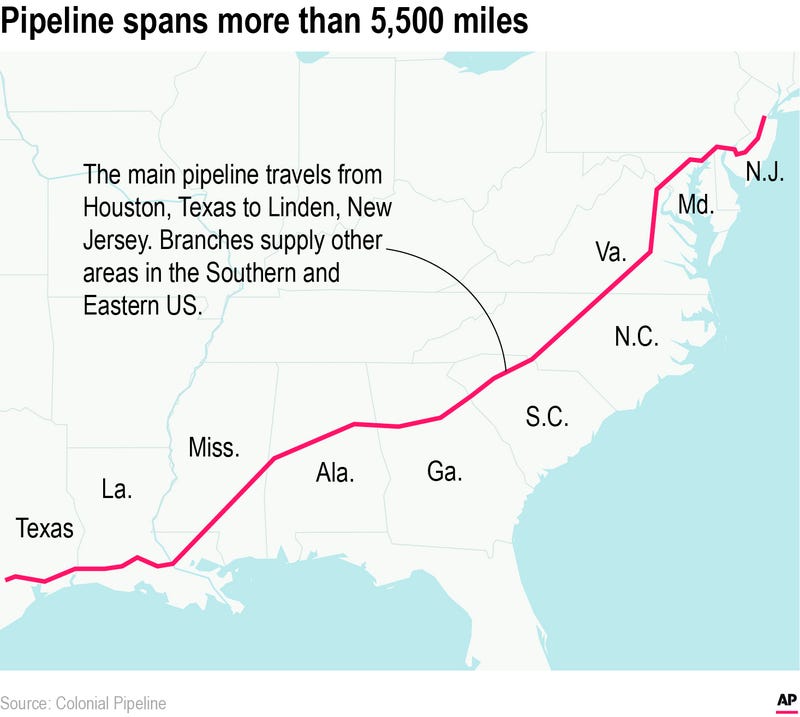PHILADELPHIA (KYW Newsradio) — Fearing a widespread gasoline shortage, drivers along the East Coast are filling up their tanks.
GasBuddy, an app that tracks fuel prices and demand, has a list of the 10 lowest prices for gasoline available on Tuesday in the Philadelphia region, from $2.67 per gallon at BJ's in Elsmere, Del., to $2.79 at Costco in Mount Laurel, N.J.
Colonial Pipeline, which delivers about 45% of the gasoline, jet fuel, diesel and other petroleum products consumed on the East Coast, halted operations last week after revealing a ransomware attack that it said had affected some of its systems.
Demand for gasoline in the United States jumped 20% on Monday, compared with the prior week, according to GasBuddy.
The average U.S. price of regular-grade gasoline has jumped 6 cents over the past two weeks, to $3.02 per gallon, which is $1.05 higher than a year ago. The year-ago numbers are skewed somewhat because the nation was going into lockdown at the time because of the coronavirus pandemic.

U.S. officials have sought to head off anxieties about the prospect of lingering economic impact by stressing that the fuel supply has so far not seen widespread disruptions.
The company said Monday that it was working toward "substantially restoring operational service" by the weekend, but Colonial has managed to restart only a small portion of its network so far.
Meanwhile, the Environmental Protection Agency issued an emergency waiver for Pennsylvania and other areas in the East, suspending certain federal requirements through May 18 for fuel sold there, in an attempt to head off any shortages that may result from the pipeline shutdown.
The Biden administration, also, loosened regulations for the transport of petroleum products on highways as part of an "all-hands-on-deck" effort to avoid disruptions in the fuel supply.
The last time there was an outage of this magnitude was in 2016, when gas prices rose 15 cents to 20 cents per gallon, said Debnil Chowdhury, executive director at IHS Markit, a financial services company. The Northeast had significantly more local refining capacity at that time.



